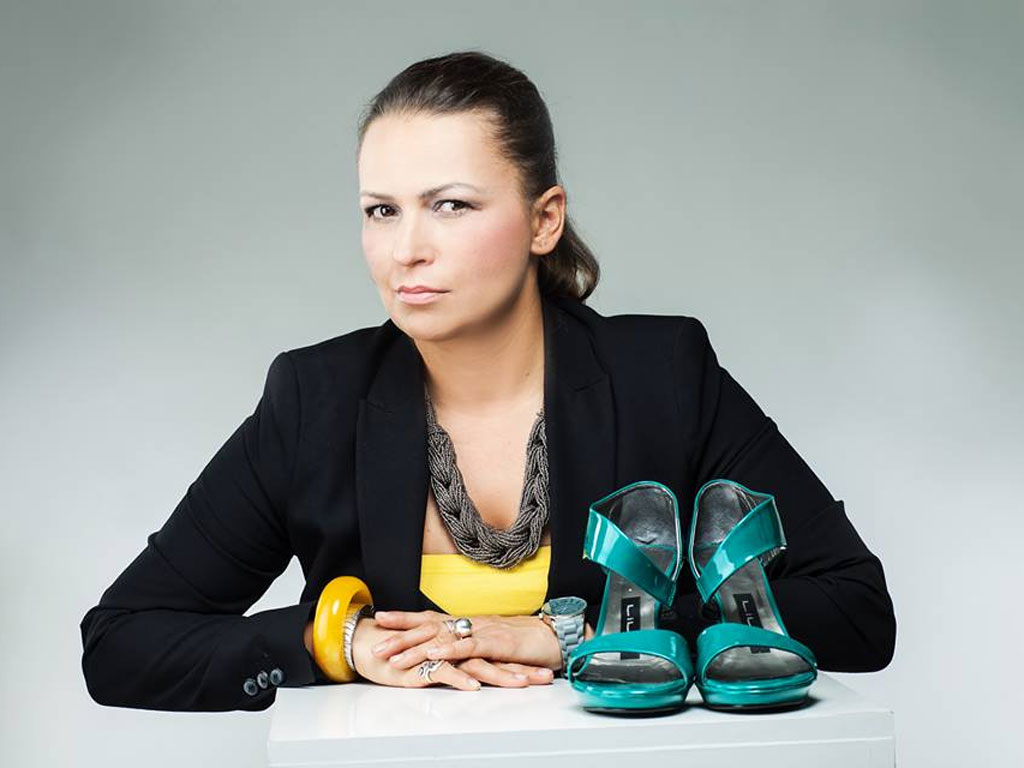Danijela Biskup, LILU footwear designer - Those who do not have money to buy cheap things wear our footwear
 Friday, 29.11.2013.
Friday, 29.11.2013.
 11:20
11:20

The state does not support local production, especially footwear plants. On the other hand, they allow import of poor quality goods from Eastern countries. Thus, our people, due to crisis, buy cheap footwear which lasts for a short period of time. This way, they did not save anything and domestic companies are failing, Danijela Biskup, a designer and an owner of the LILU footwear says at the beginning of her interview for eKapija.
LILU footwear is a part of the Identity Plus studio which Danijela set up in 2001 with her colleagues and sisters Prokovic – Jelena and Svetlana. It was an attempt for local designer to joining and thus presents the country in a better way abroad.
eKapija: You stepped into the second decade of business. How did mass footwear influence your business?
- Luckily, I have no contact with cheap footwear from China because women who wear LILU footwear do it for the quality, design they like and because they “do not have enough money to buy cheap things”. My footwear is hand-made, extremely made of leather and natural material, produced in carefully small series and the most important, it is made in Serbia.
eKapija: To what extent have customers in Serbia changed their consciousness when it comes to designed footwear or do you still have an impression that “somebody else’s is better”?
- Women, in this case customers, know a lot. They easily get information, learn and therefore know everything they need and like to buy domestic products. They have been doing it even more lately.
eKapija: Where do you procure materials?
- We procure them most often in companies which import materials from Italy, Greece, Turkey and it is the simplest way because this way I can get everything I need in Belgrade without complicated paperwork with respect to export.
eKapija: What is the production scope in LILU shoes?
- Most often we produce some 200-300 pairs a month. It is not a large quantity but I would like to point out that we are a small, manual production. It is much easier to run a small company than those such as Obuca Beograd which used to produce 15.000 pairs per day. But on the other hand, when this kind of company fails, a whole small town fails with it according to the number of people who lose their jobs.
At the moment, LILU production has more than 10 people, both the employed and external associates cooperating for years, plus organization and sales. There are more than 15 of us.
eKapija: What are best-selling models?
- The simplest models are always best-sellers, such as saloon shoes. There are a few kinds of models I have been making for years, at different heights and they always sell well. There are also current trends. These are the models which sell well for some time but they do not last for a long time. We combine commercial and non-commercial models and I think this is the right way.
eKapija: In 2005, you stepped into new markets. Which countries do you export to?
- Yes, as of 2005, we have been trying to export to other boutiques worldwide. However, there is a number of problems. First of all, in the meantime, world economy crisis emerged and all the shops decreased the scope of work. Secondly, if you export and you are a small company, you have a lot of work with the export paperwork. Small companies do not have sufficient number of staff to solve all these issues. In different period we exported to England, Switzerland, and America. I have to day that, unfortunately, these are all periodical exports.
eKapija: You won the Flower of success for a women-dragon awards as “the most European” company. What other steps are essential in Serbia to make female entrepreneurship more developed?
- I would not separate female from the ordinary entrepreneurship. The support system is something which could be made at the country level. It would be good to help domestic production to revive and stand on its feet again, not to provide only foreign investors large funds for newly-employed people, to use huge empty space and provide them to local production at low prices because the state has them too many. This way, electricity and heating bills would be paid, more people would be hired and many abandoned and deserted spaces would be maintained.
eKapija: What are your business plans for the upcoming period?
- Plans mostly refer to technical things. We are planning to expand production and production area. I am convinced that better organization in this business segment will help sales increase. Up till now, it turned out that everything we wanted, we did it. I hope this time we will also manage it.
Jelena Djelic


 Izdanje Srbija
Izdanje Srbija Serbische Ausgabe
Serbische Ausgabe Izdanje BiH
Izdanje BiH Izdanje Crna Gora
Izdanje Crna Gora


 News
News








